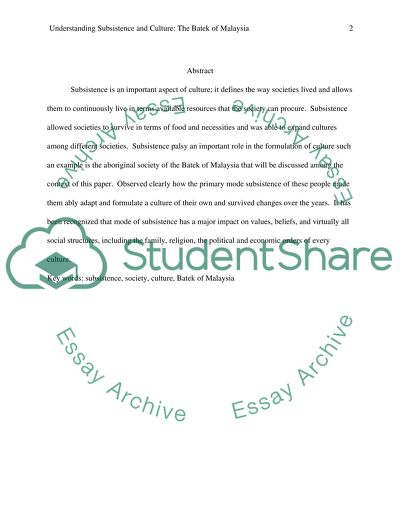Cite this document
(“Understanding Subsistence and Culture: The Batek of Malaysia Essay”, n.d.)
Understanding Subsistence and Culture: The Batek of Malaysia Essay. Retrieved from https://studentshare.org/anthropology/1452403-analyze-and-evaluate-culture
Understanding Subsistence and Culture: The Batek of Malaysia Essay. Retrieved from https://studentshare.org/anthropology/1452403-analyze-and-evaluate-culture
(Understanding Subsistence and Culture: The Batek of Malaysia Essay)
Understanding Subsistence and Culture: The Batek of Malaysia Essay. https://studentshare.org/anthropology/1452403-analyze-and-evaluate-culture.
Understanding Subsistence and Culture: The Batek of Malaysia Essay. https://studentshare.org/anthropology/1452403-analyze-and-evaluate-culture.
“Understanding Subsistence and Culture: The Batek of Malaysia Essay”, n.d. https://studentshare.org/anthropology/1452403-analyze-and-evaluate-culture.


